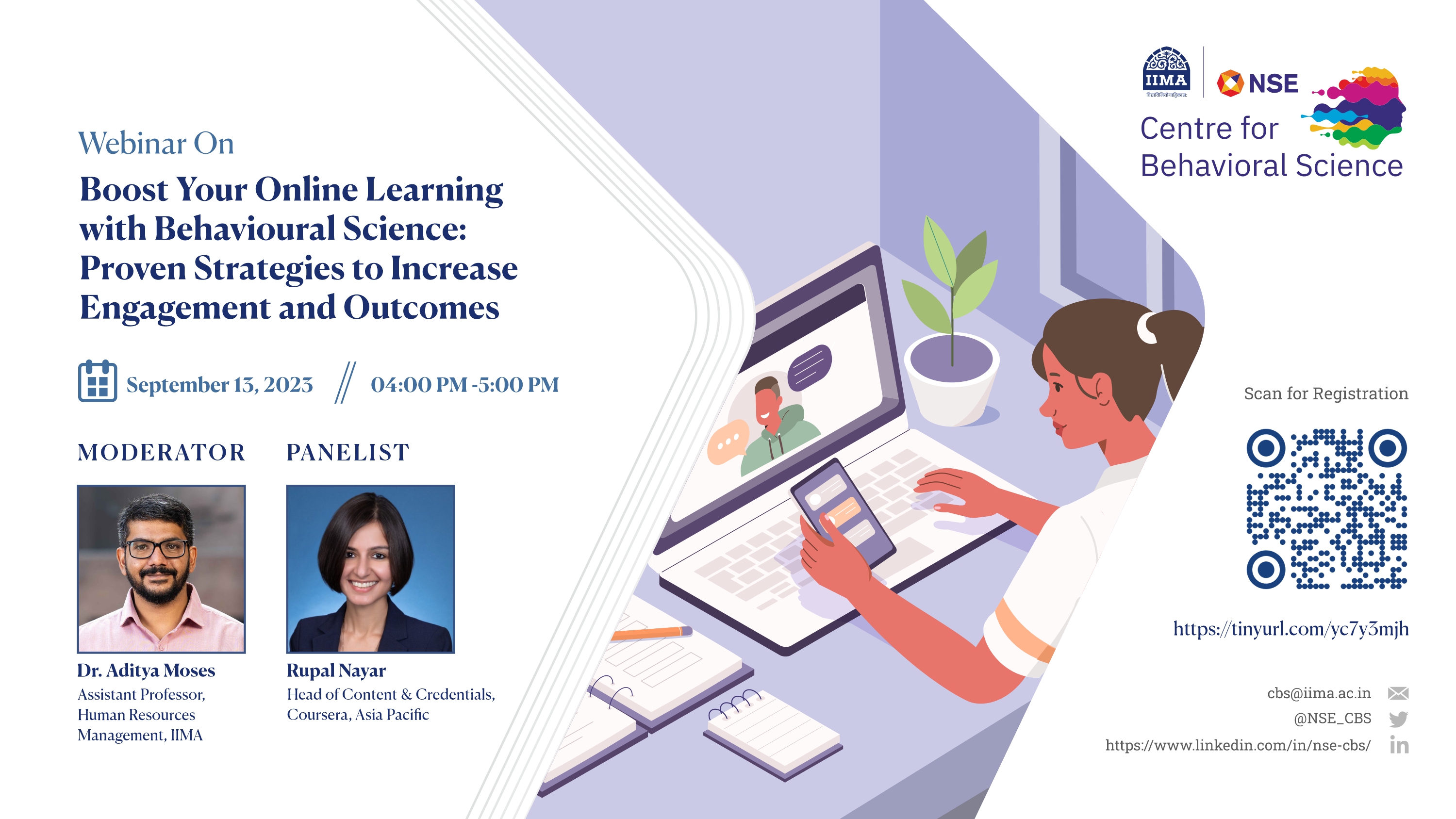
13/09/2023 - 13/09/2023

Rupal Nayar is Head of Content & Credentials for Coursera, Asia Pacific. Nayar leads online degrees for the region and oversees university and industry partnerships to develop online certificates and degrees to enable more learners to achieve greater momentum and success. Formerly, Rupal was with the Bill & Melinda Gates Foundation where she developed scalable and affordable digital learning solutions in higher-education. Nayar is an Acumen Fellow and holds an MBA from Haas School of Business, U.C. Berkeley, USA; M.Sc. International Finance and Economics from University of Warwick, UK and a Bachelor’s Degree in Economics from St. Xavier’s College, Mumbai. Dr. Aditya Moses is Assistant Professor of Human Resource Management at IIMA.
In the realm of Massive Open Online Courses (MOOCs), the pressing query centers on how to ensure active engagement and course/degree completion. Coursera's very own Ms. Rupal Nayar, drawing from her wealth of experience, graciously shares profound insights and pioneering strategies for cultivating effective learning environments, all while challenging the conventional wisdom that course completion rates are the sole arbiters of success.
In the ever-evolving landscape of MOOCs, the mantra is "learner-first." To truly excel, one must don the learner's perspective, delving into their aspirations, objectives, and constraints to craft a tailored learning experience. Research has unequivocally demonstrated that students who embark on their learning journey with resolute determination in the critical initial fortnight, maintaining a steady pace, active participation in discussion forums, and impeccable course selection, tend to achieve the zenith of success. Considering this, platforms should be proactive in implementing scheduling assistance measures. For instance, offering learners the freedom to dictate their pace and furnishing them with regular progress updates via email, along with actionable suggestions to adapt their goals, proves instrumental in maintaining their momentum. Furthermore, a concerted effort must be invested in matching learners with courses that impeccably align with their ambitions.
The Herculean task lies in devising strategies that can be seamlessly executed on the grand stage of online learning, where millions of students converge on a singular platform. Ms. Nayar illuminates this conundrum by spotlighting the effectiveness of nudges, manifested as timely messages during assignment submissions, in staunchly curtailing plagiarism rates. Moreover, the bedrock of success rests in sound course design practices, including the provision of comprehensive feedback through quizzes, the infusion of real-world applicability via technical projects, active facilitation of discussions in virtual forums, judicious use of succinct exercises, and the dynamic adaptation of courses based on robust analytics. To fortify the edifice of online learning, it is imperative to erect scaffolding that ensures learners never walk alone on their digital educational odyssey.
True learner-centricity entails a profound understanding of the diverse contexts from which students hail. For instance, in India, where many learners access these platforms via their smartphones, bandwidth constraints often loom large. Therefore, the adaptability of the website, replete with options to download videos for later consumption, becomes paramount. In another instance, for women, the constraint of limited available time can pose formidable hurdles in engaging with STEM courses. Lastly, not all learners aspire to complete entire courses; some simply seek to glean insights from modules germane to their needs. Appreciating these nuanced contexts is pivotal to charting a brighter course for the future of online learning.
So, what does this future of online learning hold in store? Ms. Nayar posits that online education is a potent instrument for furnishing individuals with access to high-quality education that might otherwise remain beyond their reach. It empowers them to advance their careers and elevate their quality of life. Thus, the trajectory of online learning is irrevocably intertwined with the future of high-quality education itself.
